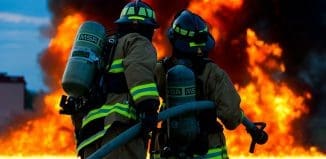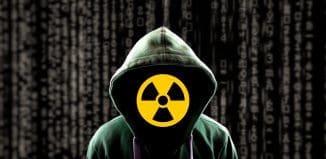Egozi: Turkish-Pakistani Rapprochement is Raising Concerns
This post is also available in:  עברית (Hebrew)
עברית (Hebrew)
By Arie Egozi
Strategic relations between Turkey and Pakistan with a special focus on nuclear cooperation raise concern in Jerusalem and Washington.
Turkey owns the major components for nuclear capability – Uranium and nuclear research facilities, TR-1 and TR-2, which are maintained by the Turkish Atomic Energy Agency.
One of the challenges facing the ability to obtain nuclear weapons is nuclear fuel production – civilian nuclear reactors, for example as in Iran, can be used as a means of producing nuclear fuel that could also eventually build an arsenal of nuclear weapons.
Turkey is currently building its first civilian reactor for power generation with significant Russian aid. The Russian Atomic Energy Corporation, Rusatom, won a $20 billion bid in September to build four civilian nuclear reactors on Turkey’s Mediterranean coast.
Turkey has shown great interest over the past few decades and sought to learn the skills needed to purify uranium as well as turn it into plutonium – the two major fuels needed to obtain nuclear weapons.
The rapidly developing strategic ties between Turkey and Pakistan are now raising concerns in the international arena, as there is a possibility that nuclear weapons knowledge might be transferred between the two countries.
The Turks openly signify their intent and possess the raw materials for producing nuclear weapons, but nonetheless, these skills and knowledge are the components they currently lack.
In the 2000s, Turkey was a secret industrial hub for a global “nuclear black market” network run by the “Pakistani nuclear father”, Abdul Qader Khan.
Abdul Qader Khan is a Pakistani, nuclear physicist and a metallurgical engineer, who founded the uranium enrichment program for Pakistan’s atomic bomb project.
Khan’s “nuclear black market” has sold to various buyers around the world the technical skills and raw materials needed to produce a nuclear arsenal.
In recent months ,Turkey’s President Recep Tayyip Erdogan has complained about the unfair situation whereby some countries are free to possess nuclear tipped missiles, while others are not – a situation he cannot accept. In a statement in early September 2019, he did not miss the opportunity to single out Israel, not for the first time, which he views as threatening the region with its alleged nuclear weapons.
Researchers in the Israeli Institute for National Security Studies (INSS) raised the question about what might be the reason that brought Erdogan not only to raise the nuclear issue at this time, but for the first time to threaten to develop his own capability?
“Despite the direct reference to Israel, this is unlikely to be a motivating factor for the current statement, as Israel has been an assumed nuclear state for over 50 years. Moreover, while Erdogan has complained about Israel’s nuclear arsenal in the past, he has done so in the context of advocating for nuclear disarmament, not for Turkey to develop its own capability”.
What then has changed? The researchers say that perhaps the most important factor is the message coming from the Trump administration that it intends to reduce its commitments in the Middle East, and the implications of this withdrawal. “With this change, Erdogan sees an opportunity to position Turkey in a leadership role. To establish that role and to enhance his prestige, acquiring nuclear weapons could be important.”
The researchers say that while NATO currently still provides a nuclear umbrella for Turkey that at least for now is credible, Erdogan seems to have his doubts as to its viability. “Or, perhaps due to tensions with the US, he no longer wants to be beholden to this potentially unreliable umbrella.”
According to the researchers, following a US withdrawal from the Middle East, there also seems to be a new urgency regarding the reshuffling of power in the region that began at least four years ago, with Iran and Russia trying to fill the vacuum. “These powers are attempting to implement their own dreams of regional prominence – to be dominant players that must be included in regional dynamics. In this scenario, Turkey may sense that nuclear weapons will give it an important advantage.”
Professor Uzi Rabi, the Director of the Moshe Dayan Center for Middle Eastern and African Studies said that the military nuclear capability is on Erdogan’s target list. “He is now testing his options through the reactions to his operations in Syria.”































